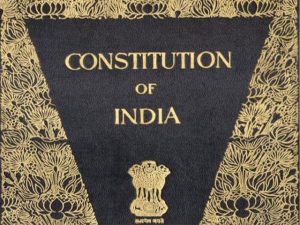Article 25 Of Indian Constitution:

The Kerala High Court recently observed that the fundamental right under Article 25 of the Constitution to enter a temple for worship does not give the right to any member of the Hindu community to perform the role of Archakas (priests).
- Article 25 says that all persons are equally entitled to freedom of conscience and the right to freely profess, practice, and propagate religion.
- The implications of these are:
- Freedom of conscience: Inner freedom of an individual to mould his relation with God or Creatures in whatever way he desires.
- Right to profess: Declaration of one’s religious beliefs and faith openly and freely.
- Right to practice: Performance of religious worship, rituals, ceremonies, and exhibition of beliefs and ideas.
- Right to propagate: Transmission and dissemination of one’s religious beliefs to others or exposition of the tenets of one’s religion.
- But it does not include the right to convert another person to one’s religion. Forcible conversions impinge on the ‘freedom of conscience’ guaranteed to all persons alike.
- Thus, Article 25 covers not only religious beliefs (doctrines) but also religious practices (rituals).
- Moreover, these rights are available to all persons–citizens as well as non-citizens.
- However, these rights are subject to public order, morality, health, and other provisions relating to fundamental rights.
- Further, nothing in this article shall affect the operation of any existing law or prevent the State from making any law to:
regulate or restrict any economic, financial, political, or other secular activity associated with religious practice;
provide for social welfare and reform, or throw open Hindu religious institutions of a public character to all classes and sections of Hindus;




